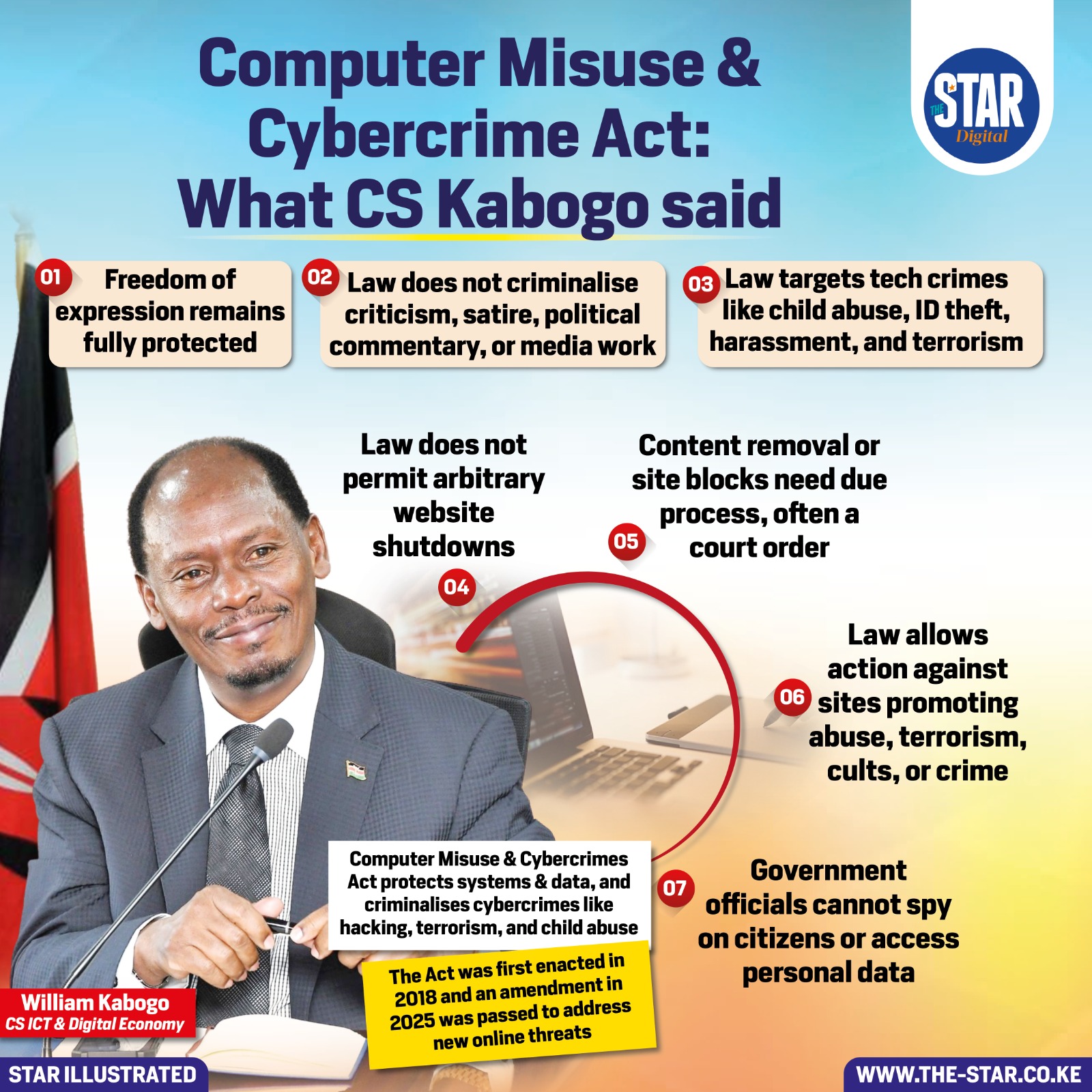

The Computer Misuse & Cybercrime Act aims to protect computer systems and data while criminalising various cybercrimes, such as hacking, terrorism, and child abuse. The original act was enacted in 2018, with an amendment passed in 2025 to address new online threats and challenges.
A key point emphasised by CS William Kabogo is that the law is designed to uphold fundamental rights. Freedom of expression remains fully protected, and the Act does not criminalise criticism, satire, political commentary, or legitimate media work.
Crucially, the law includes safeguards against arbitrary government action. It does not permit arbitrary website shutdowns. Any decision for content removal or site blocks requires due process, which often necessitates a court order.
The Act specifically targets technological crimes like ID theft, harassment, and terrorism. It also allows for action against sites promoting abuse, terrorism, cults, or crime. Importantly, government officials are prohibited from spying on citizens or accessing personal data without authorisation, underscoring a commitment to privacy.


















